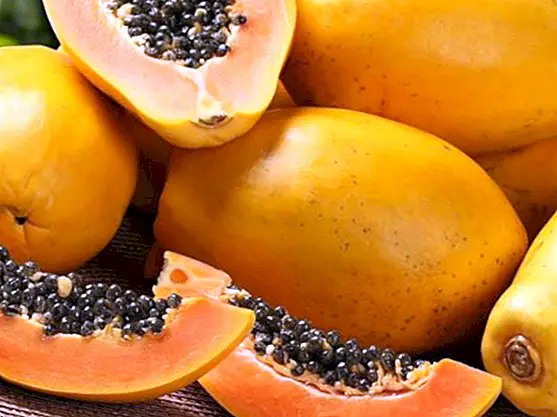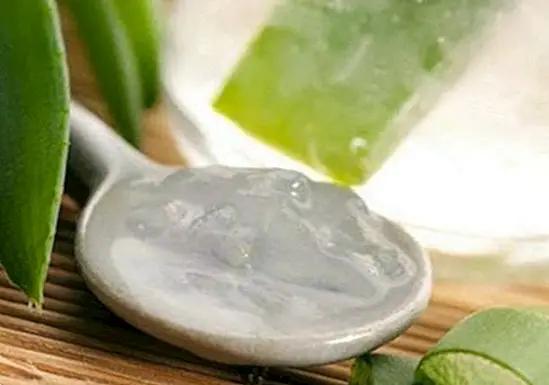Papaya: benefits and properties
The papaya It is a wonderful tropical fruit with an extremely characteristic shape and appearance, and of great size, originally from Mexico. Although nowadays it is cultivated in a wide variety of regions of the world. In the Canary Islands, for example, it is also cultivated, although in this place it is popularly known by the name of papaya. In fact, the papaya seeds They are also often used for their qualities.
In other regions of the world it is known by other names, such as in Venezuela, where it is known by the name of milky, in Paraguay and Argentina it receives the denomination of mammon, and in other areas the denomination of olocotonor papayón.

Be that as it may, we are faced with a wonderful fruit of properties and benefits recognized throughout history. In fact, the medicinal effect of papaya It was discovered by the Mayans, and since then stands out clearly for being a fruit with a series of benefits and very important properties.
For example, the presence of papain, an enzyme with digestive benefits, which helps in the process of digestion, especially when we consume food of animal origin as could be the case of meat.
Benefits of papaya
Antioxidant properties
Papaya is extremely rich in antioxidants, among which the content of lycopene, a natural carotenoid that contributes to the particular coloring of this fruit, and that is precisely what provides these antioxidant qualities.
For this reason, papaya is especially useful when it comes to reducing the negative action of free radicals, which are oxidizing agents resulting from the course of the natural metabolism of the organism, so that if our organism produces them in excess they cause damage to DNA and connective tissue, in addition to causing cellular deterioration.
In fact, Free radicals are considered to be mainly responsible for the premature aging of cells, hence the importance of following a diet rich in natural antioxidants.

Helps to prevent cardiovascular diseases
In the papaya we also find flavonoids, which, like lycopene, act as natural antioxidants against free radicals. In this way, papaya becomes an excellent fruit in the prevention of cardiovascular diseases.
Particularly, the flavonoids are especially useful when it comes to protecting our body from the oxidation of LDL cholesterol.
Ideal for the health of our skin
Papaya is able to cover a good part of the recommended daily amount of vitamin A, a fundamental nutrient for the health of our skin. Thus, papaya is especially useful when it comes to improving the skin, thanks to the fact that beta carotene is the main precursor of this vitamin.
And what benefits does it bring? Very simple: it helps us to protect ourselves from solar radiation by helping in the synthesis of melanin, a natural pigment that also helps us to better tan.
Increase our defenses
At the time of increase defenses There is no doubt that papaya becomes one of those fruits that could not be missed in our fruit bowl. Why? Very easy: papaya is especially rich in vitamin C, a vitamin that helps us to maintain the natural defenses of our body.
In addition, it is another essential nutrient with antioxidant action, so it also helps us again when it comes to protecting ourselves against the action of free radicals.

Digestive qualities
The papaya in turn favors and aids in digestion, to contain protease enzymes that are similar to those found in the stomach.
As you surely know, it highlights its content in papain, an enzyme that precisely helps us maintain a healthy digestive system which has the capacity to digest the proteins of the food we consume.
Nutritional information of papaya
It is a prominent fruit because it contains a large amount of vitamins (among which we find vitamins of group B, C, A and D), minerals (such as calcium, potassium or sodium), and dietary fiber.
Not surprisingly, papaya is considered one of the fruits richest in antioxidants, since only half of the fruit provides about 38 milligrams of carotenoids, which is able to protect us against cancer or cardiovascular diseases.
On the other hand, its contribution of both proteins and fats is relatively low, as in fact happens with most fruits.
Nutritional contribution of papaya per 100 grams:
| Nutrient | Content / Contribution |
|---|---|
| Calories (kcal.) | 43 |
| Carbohydrates | 10.82 g |
| Proteins | 0.5 g |
| Fat | 0.25 g |
| Fiber | 1.90 g |
| Vitamin A | 152.50 IU |
| Vitamin C | 80 mg |
| Vitamin B1 | 0.02 mg |
| Vitamin E | 0.3 mg |
| Calcium | 20 mg |
| Magnesium | 21 mg |
| Match | 10 mg |
| Potassium | 182 mg |
| Sodium | 8 mg |

Properties of papaya
Here we summarize the main properties of papaya. Any excuse not to enjoy it right now ?:
- It has a large amount of vitamins and minerals, as well as dietary fiber.
- Thanks to its fiber content, it is a fruit with a great detoxifying power, helping in turn to detoxify our body, and facilitate the expulsion of toxins that have accumulated over time.
- Great antioxidant power, thanks to the presence of carotene, vitamin C and flavonoids.
- It is a depurative fruit, which helps cleanse both the colon and the intestines.
- It is protective against cancer and cardiovascular diseases.
- Anti-inflammatory properties, thanks to the joint action of vitamin C, E, beta-carotene and enzymes.
- It protects against rheumatoid arthritis (and other inflammations).
- It is mild diuretic so it helps against fluid retention and purify our body: ideal in this case for children.
- It helps to make digestion well, thus avoiding heavy digestion.
How to make dehydrated papaya?
The Dehydrated papaya It becomes another option to enjoy the different qualities that this wonderful and exquisite fruit offers us. Of course, we must keep in mind something very important: its sugar content is much higher, so its consumption in this way is not so advisable for people with diabetes.

Be that as it may, Dehydrated papaya is the result of drying fresh papaya, thus achieving an evident reduction of its water content. For this reason, dehydrated papaya tends to look smaller and brighter, and its sweet taste increases dramatically.
If you want to learn how to make dehydrated papaya at home, it is really very simple. If you do not have a dehydrator, you can opt for the oven to get it.
To do this you just have to peel the papaya and cut it into very small pieces. Put aluminum foil in the oven tray and heat at low temperature. Put the papaya in the oven, turning it over from time to time to prevent it from burning. You should leave it in the oven between 3 to 6 hours.
Ready! After this time remove from the oven, let cool and store the dehydrated papaya in a glass jar. This article is published for informational purposes only. You can not and should not replace the consultation with a Nutritionist. We advise you to consult your trusted Nutritionist. ThemesFruit Foods


